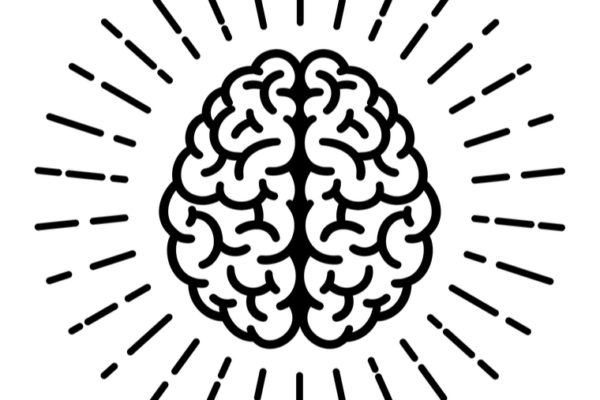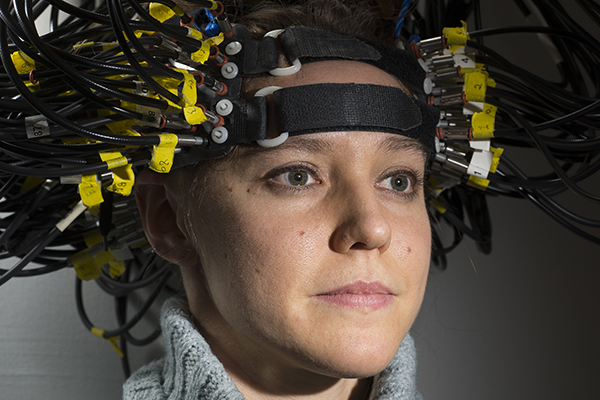Diving in to how our brains process information
Why don’t you eat your friend’s lunch when you are hungry? Cognitive control. Researchers at the School of Engineering & Applied Science and Arts & Sciences at Washington University in St. Louis are working together to better understand this aspect of cognition.
Optical brain scanner goes where other brain scanners can’t
Scientists have advanced a brain-scanning technology that tracks what the brain is doing by shining dozens of tiny LED lights on the head. The technique compares favorably to other approaches but avoids the radiation exposure and bulky magnets the others require, according to new research at the School of Medicine.
Speedier scans reveal new distinctions in resting and active brain
A boost in the speed of brain scans is unveiling new
insights into how brain regions work with each other in cooperative
groups called networks. Shown is the study’s senior researcher, Maurizio Corbetta, MD.
Brain differences seen in depressed preschoolers
A key brain structure that regulates emotions works differently in preschoolers with depression compared with their healthy peers, according to new research at the School of Medicine. Brain scans of preschoolers with depression revealed
elevated activity in the amygdala, the area shown in the red circle, when compared with scans of young children exhibiting no signs of
depression.
Human Connectome Project releases major data set on brain connectivity
The Human Connectome Project, a five-year endeavor to
link brain connectivity to human behavior, has just released a set of
high-quality imaging and behavioral data to the scientific community. Shown is a map of the average “functional connectivity” in the human cerebral cortex, collected on healthy subjects while “at rest” in the MRI scanner.
Everyday Clairvoyance: How your brain makes near-future predictions
Every day we make thousands of tiny predictions — when the bus will arrive, who is knocking on the door, whether the dropped glass will break. Now, in one of the first studies of its kind, researchers at Washington University in St. Louis are beginning to unravel the process by which the brain makes these everyday prognostications.
Researchers study children at risk for Tourette syndrome
Neuroscientists at Washington University School of Medicine in St. Louis are studying children who may be at risk for Tourette Syndrome due to the onset of motor and/or vocal tics. Many kids develop tics that later disappear, but the researchers want to learn why for some, those tics represent the beginnings of Tourette Syndrome.
MRI scans reveal brain changes in people at genetic risk for Alzheimer’s
People with a known, high risk for Alzheimer’s disease develop abnormal brain function even before the appearance of telltale, amyloid plaques that are characteristic of Alzheimer’s disease, according to a new study from researchers at Washington University School of Medicine in St. Louis. The findings suggest that a gene variant affects brain function long before the brain begins accumulating the amyloid that will eventually lead to dementia.
Reward-driven people win more, even when no reward at stake
Whether it’s for money, marbles or chalk, the brains of reward-driven people keep their game faces on, helping them win at every step of the way, even when there is no reward at stake, suggests a surprising Washington University in St. Louis brain scan study published online today by the journal Proceedings of the National Academy of Science.
Readers build vivid mental simulations of narrative situations, brain scans suggest
A new brain-imaging study is shedding light on what it means to “get lost” in a good book — suggesting that readers create vivid mental simulations of the sounds, sights, tastes and movements described in a textual narrative while simultaneously activating brain regions used to process similar experiences in real life.
View More Stories


